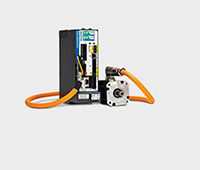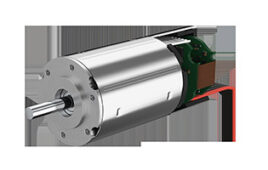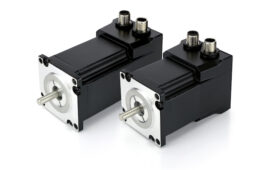Edited by: Paul J. Heney • Editorial Director
We hear a lot in the news about robots or computers gaining intelligence or having consciousness. The trouble is they’re talking about very precise issues with very imprecise, subjective language. Nobody has ever defined for me in a measurable, meaningful way what they mean by consciousness. They’ve never described in a specific, demonstrable, quantitative way, the characteristic that they would use to measure that and even to define artificial intelligence.
 You don’t have to be that old to remember a day when adding machines were the method that people used to deal with—they’d watch rows and columns of numbers, and nobody assumed that an adding machine was conscious. It was full of levers and springs and wheels. Then we went to chips that are a million times faster than that adding machine. It’s been decades since calculating machines could outperform any human in doing the multiplication of ten-digit numbers or finding the square or the cube or the cube root of any number. Yet, I don’t think most people worry that somehow, there’s a brilliant mathematician hidden in that calculator you carry in your phone or your pocket. They understand it’s an algorithm that’s been optimized and runs a specific program—and it can multiply by shifting left or shifting right or doing floating point.
You don’t have to be that old to remember a day when adding machines were the method that people used to deal with—they’d watch rows and columns of numbers, and nobody assumed that an adding machine was conscious. It was full of levers and springs and wheels. Then we went to chips that are a million times faster than that adding machine. It’s been decades since calculating machines could outperform any human in doing the multiplication of ten-digit numbers or finding the square or the cube or the cube root of any number. Yet, I don’t think most people worry that somehow, there’s a brilliant mathematician hidden in that calculator you carry in your phone or your pocket. They understand it’s an algorithm that’s been optimized and runs a specific program—and it can multiply by shifting left or shifting right or doing floating point.
The fact that it’s fantastic as a machine to do mathematical calculations does not make people think we should debate whether a calculator is a great mathematician. It’s not. It never will be. It’s not conscious because it can do multiplication or division or any other mathematical function. We can take similar silicone-based devices and add anthropomorphic input and output, instead of a keyboard, so you can say, “Machine, multiply two times four.”
The fact that a machine can wag a mechanical tail on a relatively inexpensive toy doesn’t make that toy any more conscious than a Raggedy Ann doll that was a sack of cloth with some beads on it for eyes and a nose. The kids of 100 years ago carried that doll around like it was their baby.
Humans are very good at projecting humanity into the things we have. Today, we can make a robot that can synthesize speech or wink its eyes or distort the shape of its mouth from a frown to a smile. But it’s still a machine doing those things and it’s us interpreting what we’d like there. I don’t think, no matter how realistic that machine is at projecting what we’ve designed it to do, that we should start ascribing to it un-natural, non-engineering characteristics.
Now, having said that, one could easily extrapolate that a human is nothing but an enormous piece of sophisticated, deterministic machine … and you could say that one day, in some ways, that machine will surpass our brain in many of those ways. Again, is a human truly deterministic?
If we were totally deterministic, you could remember what’s going to happen tomorrow as well as you can remember what’s going to happen yesterday—by having the processing power of your brain take a snapshot of the current situation, and as laws predict you can, knowing that the billiard ball is moving forward. It’s about to slam into those other three balls and they’ll all conserve momentum and take a very, very well-defined path. You could easily run that video back, which would show that if those three balls simultaneously hit that one ball, they come to a stop, and the cue ball would go flying back, and none of the laws of physics are violated.
Most people don’t get into the philosophical debate about whether the entire future is as well-defined as the entire past because we believe in Newtonian mechanics and causality and determinism.
If you want to think of those solutions as somehow being more humanoid, you’ll imbue them with your sense of their conscious. If you have an emotional attachment to that Raggedy Ann doll or to that little robot that smiles when it hears your voice, because somebody did a quick analysis of the spectrum coming out of your vocal cords, you can decide that that robot, because it responded to your voice and smiled, was conscious. All you’re doing is sliding along some arbitrary scale—your definition of conscious. But I don’t know that it has a basis in engineering.
Filed Under: The Robot Report, MOTION CONTROL





Tell Us What You Think!